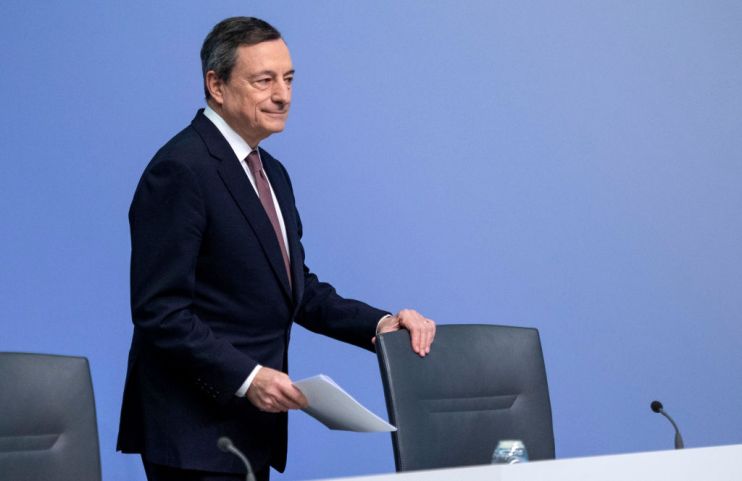ECB’s Mario Draghi set to inject stimulus into Eurozone economy – but will it work?

Mario Draghi tomorrow chairs his penultimate interest rate-setting meeting as president of the European Central Bank (ECB). The question is, will he bring a bazooka to his final battle?
Read more: US and European stocks bouyed by ECB rate cut expectations
The consensus expectation is that Draghi and co will cut the ECB’s main interest rate by 10 basis points (0.1 percentage points) to minus 0.5 per cent in a bid to spur stubbornly low Eurozone growth and inflation.
But many questions remain over what other weapons the central bank will pull out of the arsenal, and whether they will have any effect after 10 years of experimental monetary policy.
Eurozone growth has slowed further since the ECB’s gloomy last meeting in July. The German economy, the zone’s biggest, contracted in the second quarter.
Marchel Alexandrovich, senior European economist at Jefferies, said: “We expect GDP growth for 2019 and for 2020 to be nudged down” to 1.1 per cent and 1.2 per cent respectively.
A Reuters poll showed that nearly 90 per cent of economists expect the ECB to address this anaemic growth by relaunching its stimulus bond-buying programme known as quantitative easing (QE), which seeks to flood the economy with cheap cash.
Yet in recent days, European bond yields (which move inversely to prices) have risen as the markets have reevaluated just how generous the ECB will be on this front.
Andrew Kenningham, chief Europe economist at Capital Economics, said: “Bond markets have rallied sharply since July, so the case for buying more is not as strong as it was.”
Some analysts have said the ECB could lower the main deposit rate into negative territory by more than 10 basis points.
But a growing chorus of voices have warned of the effects of negative rates, which mean banks have to pay the ECB to keep excess reserves in its figurative vaults, saying they limit profit-making ability to make profits and reduce the income of savers.
The ECB could tomorrow unveil measures to limit this effect by excusing some of banks’ deposits from the charge.
Deutsche Bank economist Quinn Brody said that at a certain point negative rates become punitive. “It would be better not to experiment with the world’s second largest economic area.”
As Draghi prepares to hand over stewardship of Eurozone inflation to ex-IMF boss Christine Lagarde, bigger questions hang over the ECB and central bankers around the world.
George Buckley, European economist at Nomura, said: “It is questionable how significant of an impact all of this will have on the economy.”
The ECB says its main job is to get inflation to around two per cent, but it currently stands at one per cent.
Read more: IMF chief Christine Lagarde among surprise picks for EU top jobs
Buckley said that in the last 10 years interest rates have been slashed to record lows, the central bank has bought €2.6 trillion (£2.3 trillion) of bonds and promoted ultra-cheap lending in other ways. “And yet core inflation has failed to rise.”